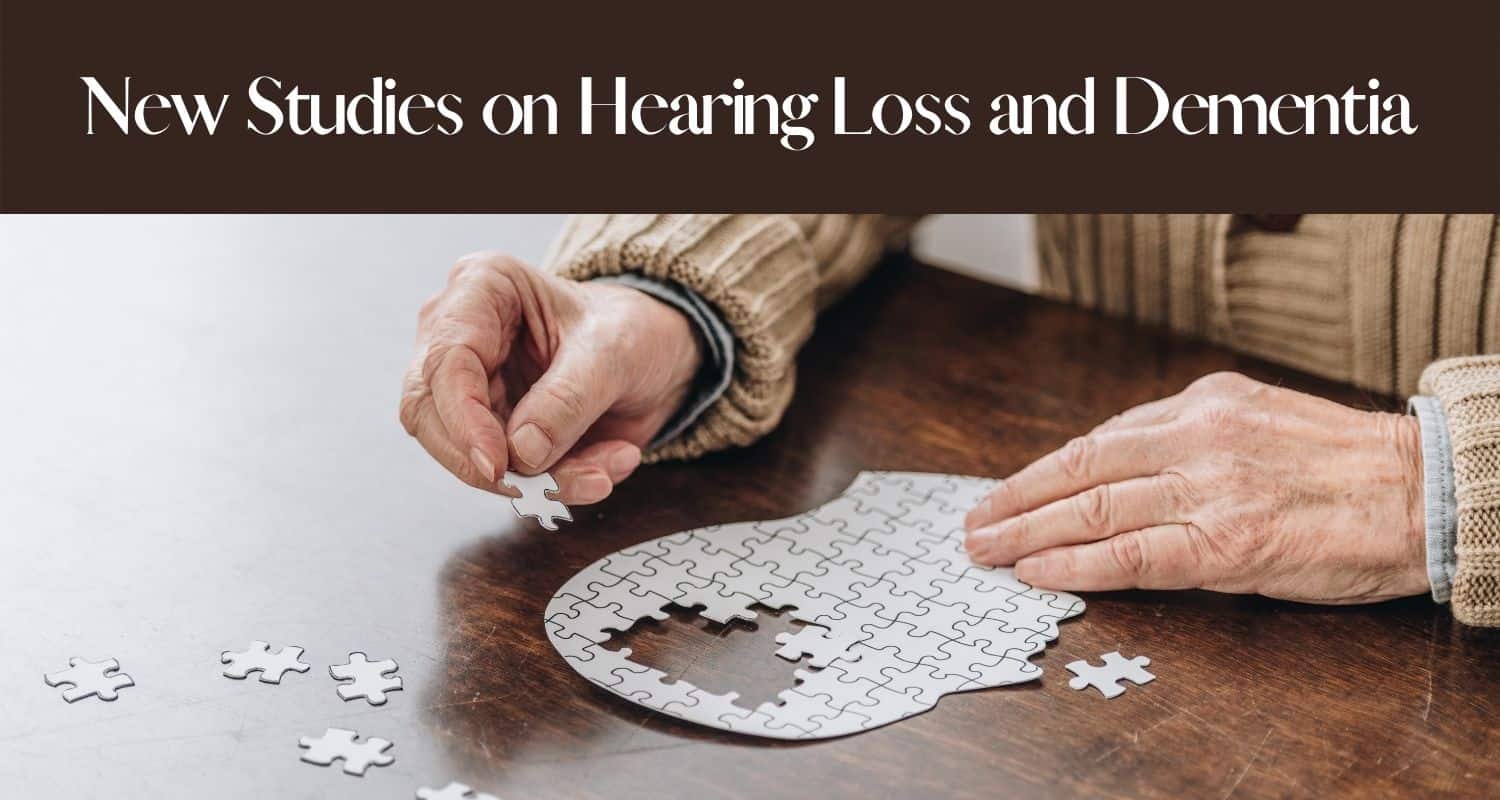
Dementia and hearing loss go hand in hand. Dementia is linked to hearing loss, according to a slew of research. This means that people who have untreated hearing loss are more likely to develop Dementia in the future. One of the latest studies on hearing loss and Dementia has linked speech-in-noise hearing loss with Dementia.
How widespread is Dementia?
As a starting point, let’s step back and take a quick look at Dementia. Its most common form is Alzheimer’s Disease. It affects an estimated 50 million people worldwide, according to the WHO. So far, there’s no treatment for Dementia other than managing symptoms and keeping the disease at bay. Preventing Dementia by better understanding the risk factors and reducing that risk is another major priority. Tobacco cessation, diabetes management, and hypertension treatment, for example, can all reduce dementia risk.
Dementia and hearing loss often go hand in hand. Many scientists believe that treating hearing loss is an effective way to slow or prevent the onset of Dementia. Keeping your social life going and exercising your brain is easy when treating your hearing loss. Treating hearing loss also improves your ability to follow conversations without straining your ears. Your brain can focus on other tasks, such as forming memories, following the conversation’s meaning, and performing other tasks while you’re listening.
Hidden hearing loss and Dementia
Hidden hearing loss has gotten a lot of attention lately. When it comes to hearing loss, this is a condition that is difficult to detect. Like an audiologist’s, a quiet place is where you can hear all kinds of sounds and speak clearly. At home, it’s simple to have a conversation with your partner. You don’t even know you’re losing your hearing in most cases.
Because of this, it becomes difficult to distinguish between speech sounds and background noise or even to understand what is being said when there is a lot of background noise. There are times when you can’t understand what people are saying in social situations. You find it difficult to converse with friends in a restaurant because the noise level is high. There are so many background noises that it’s impossible to determine what’s going on.
Research has shown that Dementia is linked to hidden hearing loss. Over several years, a recent study tracked the health of over 82,000 adults. For eleven years, researchers checked in with study subjects. They underwent a battery of hearing tests and a background noise hearing test.
Dementia struck adults at a 61% higher rate when they had trouble hearing speech over background noise. There is a 91 percent greater risk of Dementia in adults with poor speech-in-noise hearing than in adults without hearing loss.
What is the relationship between dementia and hearing loss?
Hearing loss and Dementia are likely to be linked, but research is ongoing. The explanation why is also being studied.
Hearing loss is thought to strain the brain, explaining the association between hearing loss and Dementia. Your brain goes into overdrive when you can’t hear what you’re saying clearly. The auditory system isn’t the only part of the brain working hard to make sense of sounds. What’s being said is guessed at, cues are picked up from the context, or an attempt is made to understand the emotional content of what’s being said. Dementia and other forms of cognitive decline can develop due to this stress on the brain.
Treatment of hearing loss
There is no known cure for Dementia, so researchers and healthcare providers focus on preventing the disease. Treating hearing loss is one way to lessen your risk of developing Dementia. Hearing loss that is not readily apparent, such as that caused by noise or speech, falls under this category.
Take a hearing test with us today. Testing in quiet and noisy environments helps us discover the presence of hearing loss. Appropriate hearing aids can make it easier to hear, less stressful on your brain, and help you avoid Dementia if you have difficulty hearing. To schedule an appointment, contact us!
